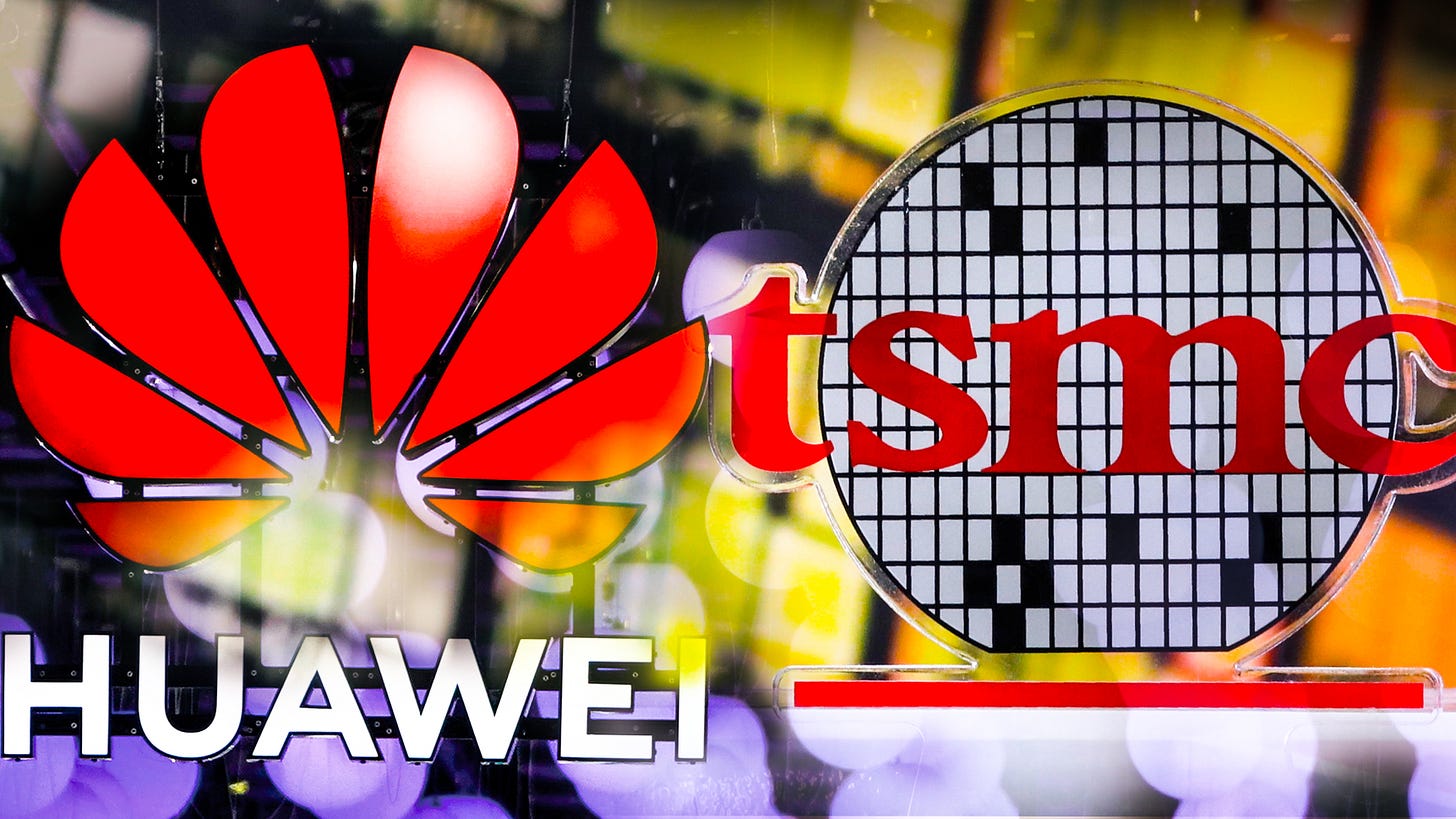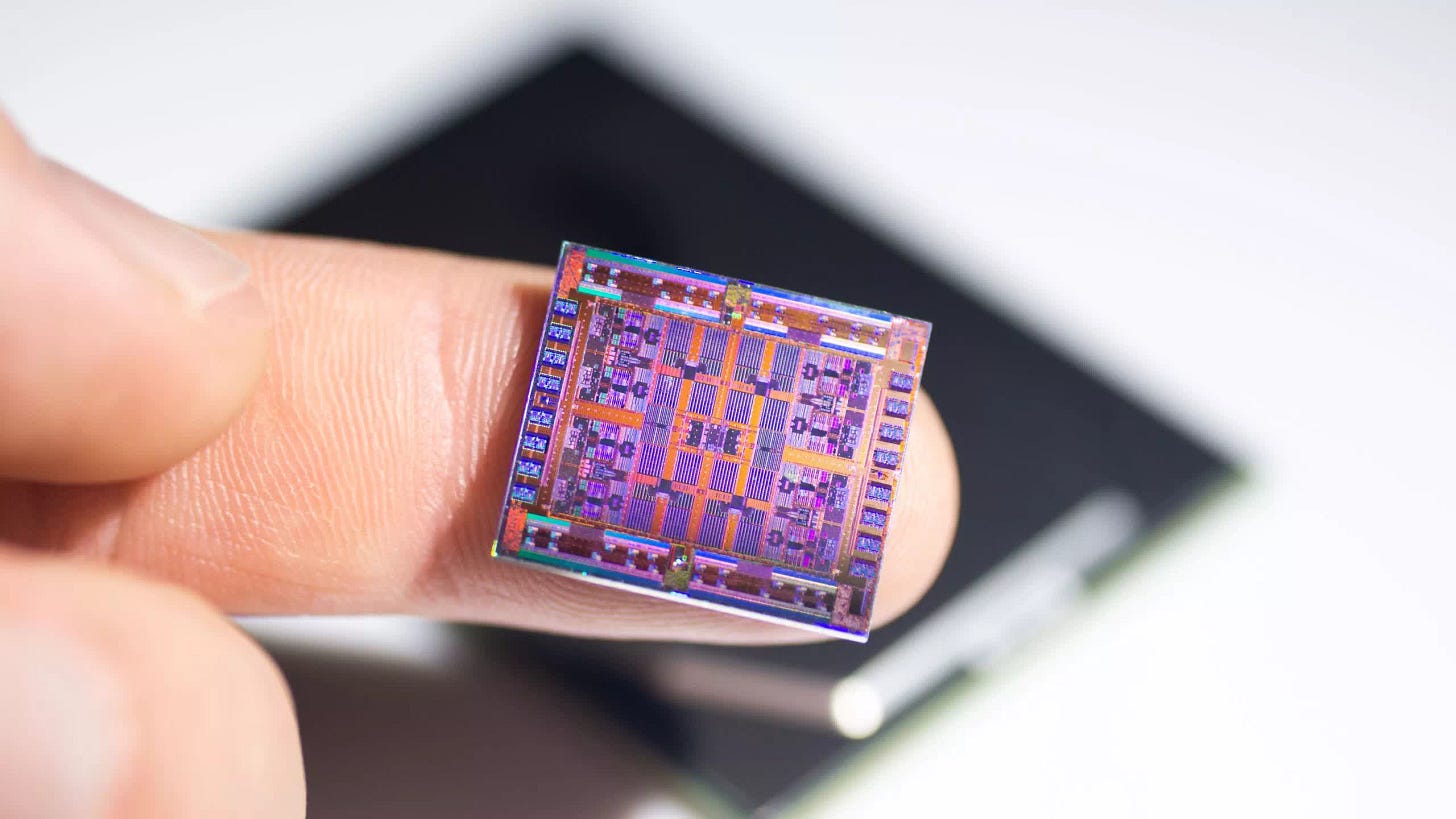Nvidia, Huawei, Trump Shakes things up - H20 competing Huawei AI chip, Semi tariff uncertainty prolonged
Nvidia has been blocked from China, and Huawei is cashing in - without a doubt this is dire.
Welcome Back,
I’m aiming to send this Newsletter more often, though likely after the slow summer months. I wanted to build a place where you could get completely caught up on the Semiconductor news cycle - with minimal effort on your part.
Newsletter goes out every 2-3 weeks (usually goes out at 7am on a Thursday: goal)
Newsletters are long, with many bullet points for easy consumption (scanning)
A lot of curated material especially from the Semiconductor community on X
Typically this Newsletter is obsessed with TSMC, and news from the perspective of Taiwan, the U.S. and companies like Nvidia.
Special attention is paid to semiconductor events in Taiwan, South Korea, Japan, China, etc… I’m also going to put more citations, in case you want to go deeper…
What to Watch 👀
The semiconductor industry is getting super interesting to watch in 2025. With Trump rescinding the Biden-Era Semiconductor Curbs there’s going to be a shift meanwhile with Earnings, we’ve learned that Chip companies from AMD to Super Micro ($SMIC) are saying U.S. tariff policy and export restrictions to China have caused uncertainty for their businesses.
As you might know, Nvidia strongly opposes the AI Diffusion Rule, warns that it poses risks to U.S. AI global dominance. Nvidia’s CEO is concerned about what Huawei will become as a future competitor as its AI chips show faster than expected progress. '
"We are at an inflection point: The United States needs to decide if it is going to continue to lead the global development and deployment of AI or if we are going to retreat and retrench," Huang told the committee on Thursday, May 1.
“China is not Behind”
🌍 Semiconductor Bits & Bites 📱
Nvidia faces vast new regulations as a US lawmaker will propose a bill to track AI chips, and brick systems in use outside of approved areas, Reuters reports, adding tracking chips, etc. are readily available. The idea for the bill came after Nvidia said it cannot track its products after they are sold. The bill has broad bipartisan support. Read: Nvidia Chip smuggling bill.
Nvidia has been blocked from China, and Huawei is cashing in, last week, the Shenzhen-based tech group Huawei - launched its Ascend 910D chip, designed to compete with Nvidia’s flagship H100. Read the full blog.
TSMC also said there is “no assurance” despite best efforts, to ensure the chips it manufactures don’t end up in the wrong place, violating export controls, in its annual report. The new US bill is a good answer to the problem and clearly will affect many more chip makers, like AMD, Broadcom, Intel, SK Hynix, Micron, Samsung, Marvell, Alchip, MediaTek, GUC, others.
AI Chip export controls are difficult to regulate and are likely leading to China attempting to accelerate its own semiconductor (SMIC, among others) ecosystem and AI chip makers like Huawei to thrive and rise in competition with Nvidia. Given the demand for datacenters, Nvidia vs. Huawei (and not AMD, ARM or Broadcom) is looking like the new face of the AI chip cold war.
TSMC’s 2nm Process Said to Witness ‘Unprecedented’ Demand, Exceeding 3nm Due to Interest from Apple, NVIDIA, AMD, & Many Others
It is claimed that TSMC's 2nm process could very well spark the company's next "gold rush," as the process is expected to deliver significant generational performance gains. TSMC is considered many years ahead of rivals like Samsung, Intel and others.
The Taiwan chip giant has seen demand for its cutting-edge node with almost every generation, and it seems like there is a trend where "demand records" are being broken with each process iteration. Read the entire piece.
Subscribe to access the entire piece.




